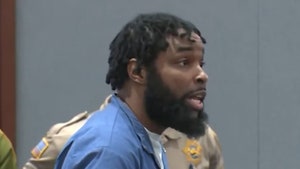By THE ASSOCIATED PRESS
Tony Bennett breaks with tradition on his Grammy-nominated CD, "The Art of Romance," by doing something he had shied away from throughout a recording career dating back more than half a century. For the first time on any of his 100-plus albums, Bennett's name can be found among the songwriting credits.
That might come as a surprise since Bennett, who received a Grammy lifetime achievement award in 2001 and became a Kennedy Center honoree last year, has introduced dozens of songs that became pop standards, starting with "The Boulevard of Broken Dreams" and "Because of You" in the early '50s.
Bennett has also written an autobiography, "The Good Life," and enjoyed a lifelong passion for painting, taking pride that his oil landscape, "Central Park," a view from his Manhattan apartment window signed with his family name Benedetto, was recently added to the permanent collection of the Smithsonian American Art Museum.
But Bennett, who turns 80 in August, had never written a song on his own until inspiration struck him during a visit to Hawaii. He heard a jazz trio playing the tune "Nuages" (French for "Clouds"), composed in the 1930s by the legendary Belgian gypsy jazz guitarist Django Reinhardt, and the dreamy melody stuck in his head.
"My son Danny, who's managed me for many years, said, 'Why don't you write a song like the contemporary artists?" said Bennett, interviewed before a luncheon honoring him as one of the National Endowment for the Arts' Jazz Masters of 2006, the nation's highest jazz award.
"I always stayed away from that, I toldhim, because I can't compete with Cole Porter or Duke Ellington orJerome Kern or Irving Berlin. ... I've always been an interpreterof the Great American Songbook through my life. And he said, 'Wellgive it a shot. So I took a crack at it, and it's the first timeI've ever written a song myself. "
Bennett's debut as a lyricist, a hopefulsong about falling in love that he titled "All For You" and adaptedfrom Reinhardt's music, is among the highlights of "The Art ofRomance," nominated for a Grammy as best traditional pop vocalalbum. The CD was also nominated for best instrumental arrangementaccompanying vocalist for Jorge Calandrelli's work on "Time toSmile," a long-lost Johnny Mercer song.
The album a family affair with son Dannyserving as executive producer and another son Dae recording andmixing the tracks at his Bennett Studios in Englewood, N.J. is acollection of 11 humorous, sad and optimistic songs depicting allstages of romance, none of which Bennett had recorded before. Thearrangements feature Bennett in the traditional setting that hasbrought out his best performances with his touring quartet, now ledby pianist Lee Musiker; a 60-piece orchestra, and a special gueststar, jazz saxophonist Phil Woods.
But the biggest thrill for Bennett wasthe chance to work again with Johnny Mandel, the arranger on thesinger's 1966 "The Movie Song Album," which Bennett considers oneof his all-time favorite recordings. For the new album, Mandelcontributed three songs, wrote five arrangements, and conducted theorchestra on most tracks.
"Every musician I've ever met justadores playing his music and when we recorded it there were a lotof very wise musicians that were just swooning around liketeenagers over the changes in the orchestrations that he wrote,"said Bennett. "He orchestrates in a way that becomes almost like aspontaneous jazz feeling."
That jazz feeling has been a key factorin Bennett's success as a pop singer. He took to heart the adviceof his vocal coach, Miriam Spier, whom he studied with afterreturning from World War II.
She said please don't imitate othersingers, recalled Bennett. "She said imitate musicians that youlike, find out how they phrase and then be influenced by the jazzmusicians."
Over the years, Bennett has surroundedhimself with jazz musicians whether as part of his touring combo orin the recording studio where he made memorable recordings withsuch jazz luminaries as big band leader Count Basie and pianistBill Evans.
"It gets terribly boring if you sing thesame way every night," said Bennett. "What's great about jazzmusicians and the art of jazz is that every moment is different,it's completely spontaneous, it's completely honest. ... It's myfavorite music in the world."
One tune that Bennett says he'll neverget tired of singing is his signature song, "I Left My Heart in SanFrancisco."
"I love it and I sing it different everynight," he said. (That song earned Bennett the first two of his 12Grammys back in 1962, including record of the year.)
In the '90s, Bennett became a majorpresence at the Grammys, dominating the traditional pop vocalcategories by winning 10 awards starting in 1992 with his Sinatratribute album "Perfectly Frank" and most recently in 2003 for "AWonderful World," on which he teamed with k.d. lang to pay homageto Louis Armstrong. His biggest triumph came in 1993 when he wonthe album of the year category for "MTV Unplugged," which made himcool to a new generation of fans without compromising hisart.
And Bennett, who will also be thesubject of a documentary produced by Clint Eastwood, could be amajor presence at next year's Grammys with his latest recordingproject a duets album of songs he's introduced. Recording sessionsare planned in New York, Los Angeles and London with Elton John,Paul McCartney, Bono, Billy Joel, James Taylor, the Dixie Chicks,Michael Buble, Diana Krall, Elvis Costello and lang, amongothers.
Bennett, the son of an Italian-immigrantgrocer, is also looking forward to groundbreaking ceremonies laterthis year on a permanent home for the public performing arts highschool he helped found in his old neighborhood the Astoria sectionof Queens. The Frank Sinatra School of the Arts is named afterBennett's best friend who gave him a major boost when he said in a1965 Life magazine interview: "For my money, Tony Bennett is thebest singer in the business, the best exponent of a song."
Some 40 years later, Bennett remains anoriginal American idol, reaching ever younger audiences, includingthe "Sesame Street" crowd in a duet with Kermit the Frog.
With characteristic graciousness andmodesty, Bennett says there is no great secret to hislongevity.
"I enjoy entertaining the audience,making them forget their problems," said Bennett. "I think people... are touched if they hear something that's sincere and honestand maybe has a little sense of humor. I think they go for it, nomatter what age."




